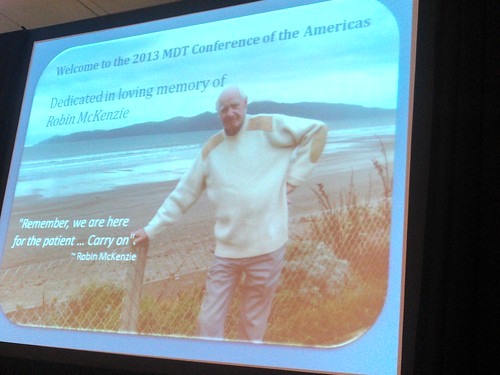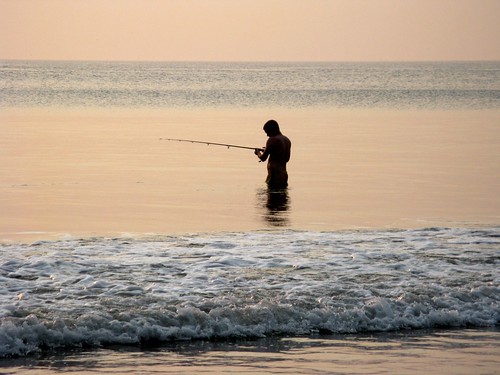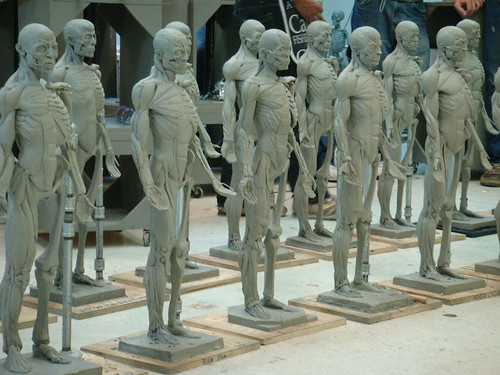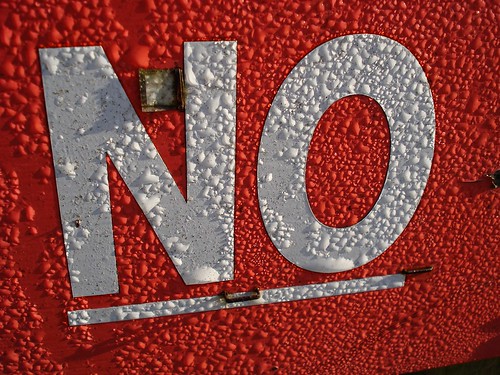 It's amazing how connected we are these days. We update our friends online. We share our photos and videos online. We get our news online.
It's amazing how connected we are these days. We update our friends online. We share our photos and videos online. We get our news online.
So imagine my disconnectedness after being in Denver for five days at a conference. It's not that the Internet doesn't exist in Colorado - it just exists in the hotel at about $12 per day. A little fiscal demand, combined with a busy schedule, countless face-to-face interactions, and some sleep wedged in there somewhere, and you are suddenly unplugged from the universe. Or so it seemed at times.
For 5 days, news from the outside world didn't really exist. It was, admittedly, quite nice.
But a few things did make it to my attention over the past couple of weeks. With that in mind, here is the next episode of the Rhubarb Report.
 This past weekend, the city of Denver hosted the McKenzie Institute Americas Conference. I made the trek to Denver to take part in what was, according to my calculations, my 14th McKenzie conference. Where has all the time gone?
This past weekend, the city of Denver hosted the McKenzie Institute Americas Conference. I made the trek to Denver to take part in what was, according to my calculations, my 14th McKenzie conference. Where has all the time gone?
As has become the norm over all of those years, the conference was chock full of current research and insightful presentations. Add to that the thought-provoking and insightful discussions after hours with colleagues from around the world.
Sadly, the 2013 edition was the first conference since the passing of Robin McKenzie. Though the conference began with a moment of silence and tribute to Robin McKenzie, it ended with a powerful reminder that there are a dedicated group of clinicians poised to forge ahead with his legacy.
 When clinicians bring up the phrase "Mechanical Diagnosis And Therapy" (MDT), they will often mention things like diagnostic classification, centralization, and directional preference. You might even hear mention of self treatment.
When clinicians bring up the phrase "Mechanical Diagnosis And Therapy" (MDT), they will often mention things like diagnostic classification, centralization, and directional preference. You might even hear mention of self treatment.
I would suggest that we can add one more phrase to the mix: public health.
MDT clinicians are uniquely qualified to contribute favorably to a public health initiative. Though that may sound like a pretty significant value proposition for the future of health care, it comes with some substantial rationale to support it. There are a number of reasons why MDT can provide the foundation for a public health initiative that could truly be a game-changer.
 The logical fallacy exists on a daily basis in the orthopedic world. Perhaps more importantly, it costs the health care world millions of dollars and a tremendous unnecessary burden psychologically.
The logical fallacy exists on a daily basis in the orthopedic world. Perhaps more importantly, it costs the health care world millions of dollars and a tremendous unnecessary burden psychologically.
Orthopedic patients are referred for countless imaging studies as a first line of assessment. An MRI is a detailed image which patients are told will provide all the answers to the diagnosis of their problem.
Technology is a wonderful thing, right?
But there are some significant problems with this that begin with the initial line of thinking.
Should we trust pathoanatomy?
 It was another example of truth being stranger than fiction: rain, in Austin, in July. As I looked out the window, I had a double-take. I had to pause to realize that no, Chicken Little, the sky was not falling, and yes, it was actually real, honest-to-goodness rain. And buckets of it.
It was another example of truth being stranger than fiction: rain, in Austin, in July. As I looked out the window, I had a double-take. I had to pause to realize that no, Chicken Little, the sky was not falling, and yes, it was actually real, honest-to-goodness rain. And buckets of it.
While the northeastern part of the country bakes, we have actually experienced the wet stuff and a (fingers crossed) only-modestly-blazing summer thus far. I am not sure what you call all of these strange weather patterns, although some might actually call it "global warming" - but I digress.
So while the sky is falling, grab an umbrella, enjoy the rain, and dive right in to the next episode of the Rhubarb Report.
 It is a simple decision that stands in our way to the promised land of health care reform. When do we finally get to the point in which health care consumers just say no?
It is a simple decision that stands in our way to the promised land of health care reform. When do we finally get to the point in which health care consumers just say no?
Imagine, if you will, a world without Big Medicine, Big Pharma, Big Insurance, and Big Hospitals. Imagine, again, that same world with legislators who made decisions based on the needs of their constituents, and not the needs of the Bigs. I know, I am creating a world of science fiction here, but work with me for a moment.
When do consumers finally decide that the status quo - and its currently accepted "standards" of health care - is no longer acceptable? And when will consumers finally choose to take back their health care system once and for all?
 Our lives are chock full of beautiful memories. Some of the simplest things can trigger them off. Add some live blues music last week to some photos I found while rummaging around, and voila - an incredible trip down memory lane.
Our lives are chock full of beautiful memories. Some of the simplest things can trigger them off. Add some live blues music last week to some photos I found while rummaging around, and voila - an incredible trip down memory lane.
In those fleeting moments, I went back to places I haven't seen in decades. But it was more than just memories. These were some epic moments of growth and discovery.
Those were the times when life was really as simple as an open mic, a blues jam, a guitar, a glass slide on my finger, and, yes, some barbeque chicken.
 "Running Injuries: Etiology And Recovery- Based Treatment" (co-author Bridget Clark, PT) appears in the third edition and fourth editions of "Clinical Orthopaedic Rehabilitation: A Team Approach" by Charles Giangarra, MD and Robert C. Manske, PT.
"Running Injuries: Etiology And Recovery- Based Treatment" (co-author Bridget Clark, PT) appears in the third edition and fourth editions of "Clinical Orthopaedic Rehabilitation: A Team Approach" by Charles Giangarra, MD and Robert C. Manske, PT.
 Allan Besselink, PT, DPT, Ph.D., Dip.MDT has a unique voice in the world of sports, education, and health care. Read more about Allan here.
Allan Besselink, PT, DPT, Ph.D., Dip.MDT has a unique voice in the world of sports, education, and health care. Read more about Allan here.
 Top 5 finalist in three categories: "Best Overall Blog", "Best PT Blog" and "Best Advocacy Blog".
Top 5 finalist in three categories: "Best Overall Blog", "Best PT Blog" and "Best Advocacy Blog".